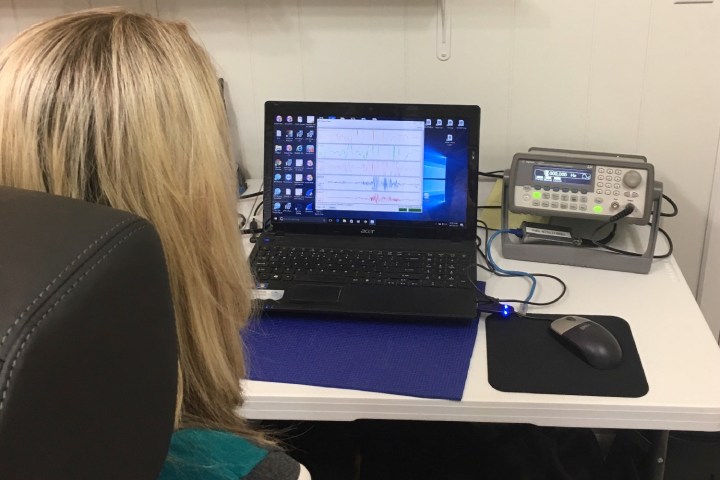
New technology developed by Freer Logic involves a so-called “non-contact neuro bio monitor headrest.” In everyday terms, that means a car headrest which can monitor your brain activity as you drive, and make sure that your full focus is on the road in front of you.
“The brain is the organ responsible for driver distraction, attention, awareness, data processing, and problem solving,” founder Peter Freer told Digital Trends. “Yet current solutions to a problem such as driver drowsiness are taken from external indicators. The state-of-the-art is using a camera to monitor eyelid droop or sag.”
The problem with this, he noted, is that it’s an indirect way of analyzing an action that’s occurred earlier in the brain; essentially adding another step to the process, which could take up valuable extra seconds when you could otherwise be reacting to a potentially dangerous accident.
Freer Logic’s neuro-bio monitor instead looks at the brain itself — using non-invasive electroencephalograph (EEG) technology to pick up and decode the electrical signals from the pyramidal neurons closest to the surface of the brain’s cortex.
It then utilizes algorithms to pore over this brain data to find patterns of cognitive load, distraction, or drowsiness. These could be used to trigger an alert of some kind, such as sending haptic feedback through your steering wheel to jolt you back to attention.
At present, Freer said his company is working with U.S. and foreign automakers about refining the technology to be used in future cars.
“The auto industry is slow in adoption of new tech, as it must be vetted quite thoroughly,” he said. “It is likely to be in vehicles beginning in 2020, and has the potential to save many lives. We are also working with consumer electronics companies as this technology can bring new life to wearables companies who are at the limit of their sensor technology.”


